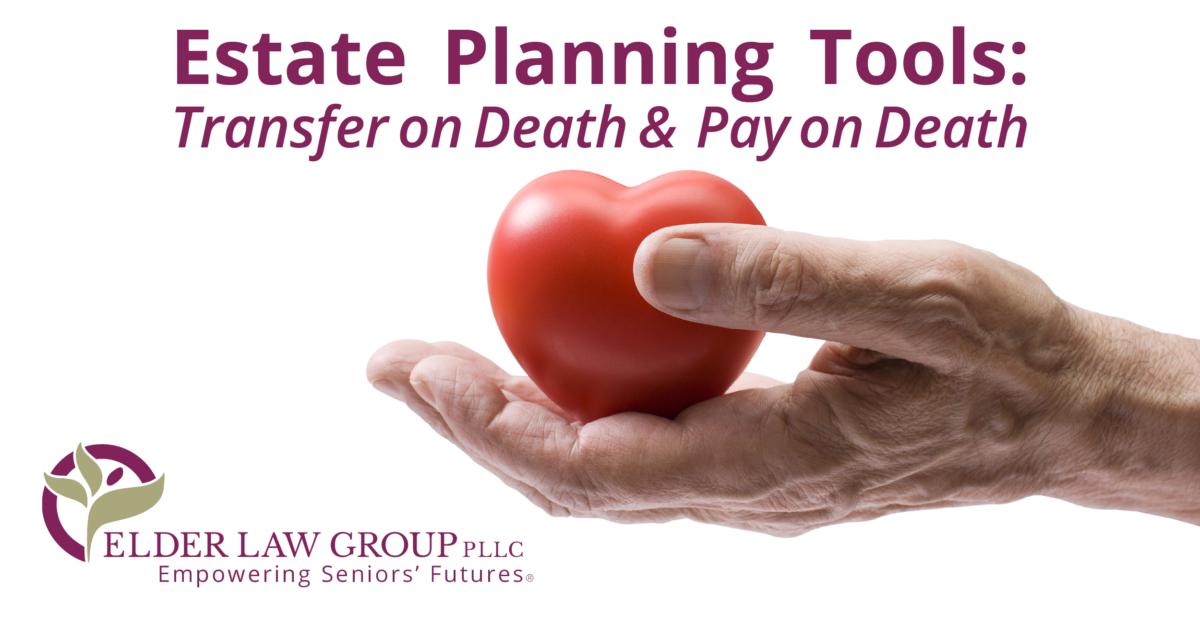Two Estate Planning tools we often use are called Pay on Death and Transfer on Death. When used with other strategies, they can be very helpful in simplifying beneficiary processes when a loved one dies. By themselves however, they can have serious drawbacks.
What does Transfer on Death mean and how does it work as an Estate Planning tool?
What are they?
Generally speaking, these are two tactics that share the same concept.
To Pay on Death refers to naming one or more beneficiaries for your bank accounts with instructions to transfer ownership to that person or persons when you pass
away.
The beneficiaries have no access to your accounts while you are alive – this is not a Power of Attorney. Rather, a Pay on Death direction avoids Probate of that asset.
Similarly, Transfer on Death is the same idea, but with real property instead. If you have a house that you want to pass to one or more people after your death, a Transfer on Death Deed (TODD) can be prepared ahead of time.
Just like the Pay on Death tool, your beneficiary would only take ownership of the property upon your passing; thus, avoiding probate of that asset.
Lacking Contingencies
With all Estate Planning, you want contingency plans to prepare for the unexpected. For example, if you name your only son as the beneficiary on the Transfer on Death Deed, and he dies before you, the property would not pass to his estate or his children on your death, even though that might be want you would want.
Transfer on Death and Pay on Death cannot replace fundamental Estate Planning Documents.
Rather, they are tools that work well in conjunction with Wills and Trusts, which give explicit instructions on what your wishes are should your “Plan A” fall through.
What are some examples where Transfer on Death would be helpful?
Avoid Family Drama
In this example, we have an older single gentleman with no children. He has several nieces and nephews – one in particular is his favorite. It’s his wish to set up his estate to pass only to his favorite nephew. He has one house, which he lives in, and one bank account.
Let’s say that he sets up his Estate Plan with a Revocable Living Trust to pass these assets to his nephew, but forgets to fund the Trust before he passes away. This is a more common scenario than you think.
Because the Trust wasn’t funded with the house or the bank account, there is nothing in it to pass to the nephew, and the Estate must go through a Probate. When this happens, all the other nieces and nephews now know what they otherwise would not have been told – that the one nephew gets everything.
A Revocable Living Trust can pass assets without going through a Probate if it is properly set up and funded. But as is commonly the case, the gentleman didn’t understand how a trust is supposed to work.
If instead he had done a Transfer on Death Deed for the house and Pay on Death instructions to the bank, he would have easily accomplished his goal without the expense of paying for a Trust and without putting his family through an unnecessary Probate.
There are several situations in which including Pay on Death and Transfer on Death instructions can improve the effectiveness of your Estate Plan and help you reach your goals.
For more information, contact the experienced legal team at Elder Law Group.


